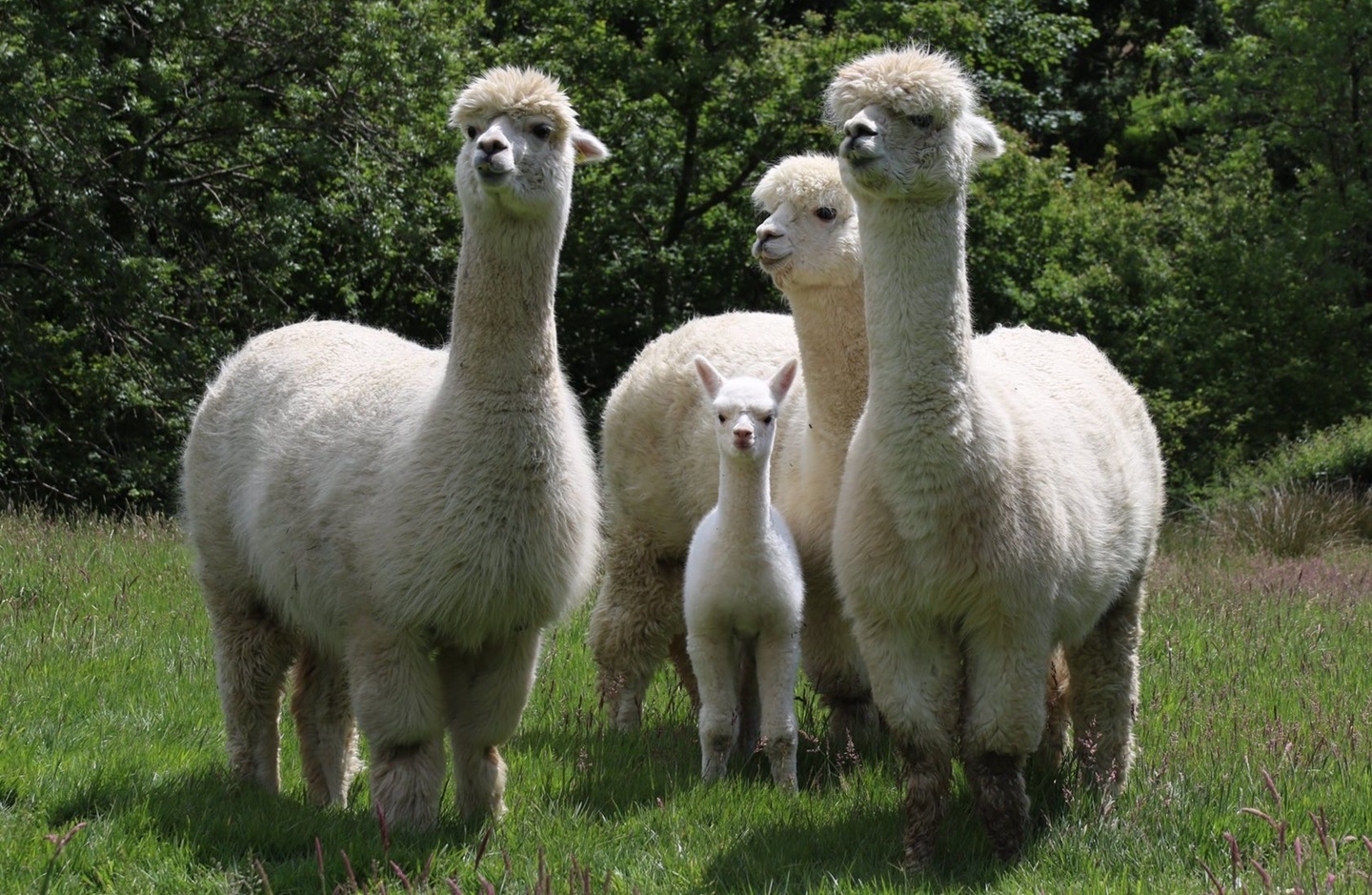Goats smarter than sheep and alpacas – study

Alpacas at Pwllpeiran Farm.
07 March 2025
Goats can process information and solve memory tests better than sheep and alpacas, according to research by Aberystwyth University scientists.
In the first study of its kind, experts at the Pwllpeiran Upland Research Centre tested the ability of three animals – sheep, alpacas and goats – to process information.
The academics assessed the animals’ ability to understand that objects still exist when no longer visible - a useful skill for tracking herd members or predators in a natural environment.
As part of a series of tests, the animals were tasked with finding objects hidden under cups – with food rewards for correct answers.
The tasks became gradually more difficult, ranging from simply hiding the object, to actively swapping over the cups and requiring the animal to track the object.
The scientists found that goats had the greatest success in the tests, while the sheep and alpacas struggled to track objects when the tasks became more complicated.
Lead author of the paper Megan Quail from Aberystwyth University said:
"This study is the first to directly compare the cognitive abilities of several domesticated livestock species. We found that goats demonstrated the greatest capacity to understand that objects still exist even if they are hidden - this could be linked to their need to be more selective in their eating habits. It may also be a sign of goats’ greater environmental awareness than sheep or alpacas.
“The ability to track other goats or predators may be a useful adaptation when navigating areas of dense vegetation whilst foraging. Equally, the ability to track and mentally reconstruct the position of stimuli within a foraging context may be a useful adaptation for greater feeding efficiency.”
The findings, published in the journal of Applied Animal Behaviour Science, also suggest that all the species have an ability to distinguish between large and small amounts of food, and are equally unable to understand different categories of shape.
In a separate new study, published in ‘Applied Animal Behaviour Science’, the researchers also found that goats performed better than sheep and alpacas in another task that tested spatial memory with buckets of food.
Professor Mariecia Fraser, Head of the Pwllpeiran Upland Research Centre, added:
“These findings have important implications for how these animals are managed, how they graze both together and apart, and how they adapt to new environments.
“We hope that this initial insight into the cognitive capabilities of alternative livestock species, like goats and alpacas, will prove useful in developing further research exploring the processes that affect grazing distribution in species with different dietary preferences.
“In the future we hope to be able to apply promising new technologies, such as the tracking of facial features in animals using artificial intelligence systems, to determine the influence of various factors on the process leading to a correct or incorrect selection on a finer scale.”



